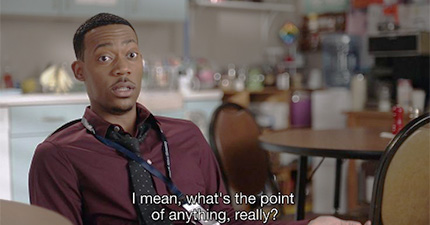I started listening to Liang Xiangrun speak the other day. I was surprised that, in the first video of a long series about Chinese astrology, he didn’t go into vocabulary or fundamentals. Instead, he started to talk about how astrology is practiced.
Astrology, as a language system, is actually very easy to learn. You can memorize the seven or so planets, the five movements, the twelve zodiac signs, understand how to plot a chart, and basically understand how the system comes together. You can learn timing techniques and how to layer them all. Liang Xiangrun says that it only takes around 2.3 months for someone to memorize all of the terms and grammar of astrology.
Practice, however, is what takes much longer. Just because someone understands how an astrological system works, doesn’t mean that they understand how to practice that system with real people and real lives.
This is the part of the video I found interesting—Liang Xiangrun tells us that an astrologer needs to keep three fundamental questions in mind when consulting. First, the astrologer needs to consider the question of fate. How does the question that the client is asking fit into the flow of their chart?
Astrology is very archetypal. Applying a person’s question to their chart isn’t easy. You might understand how Saturn works through land archetypes or how Mars works through rebel ones. What happens when someone comes to you and asks if they should move to London? Yes, they have Saturn in their chart. They have some connection to land. They have Mars in their chart. They can move to some land. But where? Is London a more mountainous region or a more marshy one? If their chart tells them to move in the direction of east, does it matter how far east they move?
Liang Xiangrun gives an example using money. Someone might come to an astrologer asking about money. If the astrologer told them that, yes, you have some money without telling them how much at what time, then that astrologer would be giving an useless response. There’s a huge difference between having one dollar and a hundred thousand dollars. Both would still be considered “having some money.”
Your birth chart is a story about your fate. It tells you about your ancestors, about your cravings, about your desires. The chart might not tell you about London but it can tell you about the invisible narrator who sees something waiting for you in London.
According to Liang Xiangrun, an astrologer should first figure out whether a client's question pertains to their own fate or to someone else's. If a client asks whether they will get a raise, the decision maker for that raise is not them but their boss. Is their boss stringy or generous? Are they trying to grow that year or lay people off? Things are different if that client is self employed. If a client asks you a question, you should figure out if they are asking about their own fate or someone else's.
The second question that Liang Xiangrun tells us to keep in mind is the question of circumstances. A client’s chart tells a story about their fate but their questions are usually about their circumstances. If a client asks if they should move to London, then the question of if they have been to London before, what they imagine themselves doing there, and if they have family or friends there becomes important. These are all questions about circumstances.
If a client comes to an astrologer and asks about moving to London, then what does the astrologer even know about London? Does the astrologer understand the circumstances of what the client is asking about? This is very important. This is why, as astrologers, we have to study so many facets of the world around us. We have to understand the circumstances that our clients are moving through.
But fate and circumstances alone don’t give us enough information. Fate and circumstances don’t tell you about your relationship with any family that you might have in London. They don’t tell you whether you will like the work that you would be seeking there. The third question that Liang Xiangrun tells us to keep in mind as consulting astrologers is the question of personality.
He says that a client’s question comes from their personality. Is the person asking you a question because they are hoping that you will encourage them into action? Are they asking you because they already made a decision and are hoping for affirmation?
Maybe your client is hoping that moving to London, a new city, will help them begin life again on a clean slate. In order to engage with their question, you would have to figure out whether your client is even the type of person to let go of the past. You would have to figure out whether a geographical move is helpful for their own habits and patterns. A move could make them even more nostalgic. It truly depends on the person.
I liked Liang Xiangrun’s three questions for consulting astrologers. I also wanted to invert his proposal. I think that consulting astrologers should consider all three questions not just for their client but also for themselves in the consultation space.
For astrologers, the question of fate usually has to do with the chart itself. Every client’s chart interacts a little differently with our own. Every client is looking for something not just from astrology in general but from your practice. Consulting astrologers should look at their own charts in relation to the charts of their clients. We should also look at the chart of the moment.
All astrologers should be perpetually studying our own charts and our own fates.
What can I offer this person as myself? Is there anything that I understand about my own fate that interrupts or aligns with what I see in the person sitting across from me? How is what I am trying to offer to my client aligned with my own fate as an astrologer?
The second question, the one about circumstances, deals with how we construct our practices. In a client consultation, the circumstances of the astrologer’s life are less in focus and the circumstances of how we have built our practice is far more important. The practice is the container.
Our practices are always changing. We learn different techniques about being with people. Astrologers are people of the jianghu—we draw consent practices from sex workers, learning practices from teachers, and healing practices from athletes. What is my practice like as a circumstance right now? What resources are available in my practice for me to support my client?
The third question that Liang Xiangrun asks us to consider is that of personality. An astrologer should always be trying to understand our own personalities so that we can exercise awareness of ourselves in sessions.
If someone comes to me and asks about moving to London, my first reaction which I won’t necessarily communicate to my client would be “why?” I have this reaction because I, personally, am someone who doesn’t like to move. I hate moving! I like to stay in one place. That’s my personality. But not everyone is like me. Some people like to move around a lot and find great inspiration in moving. For me, moving would be a big deal and a decision that I would have to agonize over for years. That’s not true for a lot of people.
If someone comes to me to ask about moving, then I would need to be aware of my own personality so that I don’t allow my own tendencies to color the client’s experience. This goes for a lot of things. If a client comes to an astrologer asking about opening themselves up to dating again and the astrologer is in an anti-dating phase of life, the astrologer should be aware of that in themselves so they can better be with their client.
An astrological consultation isn’t just a lecture where an astrologer communicates the theory of a chart to the client. The theory of a chart might not even address a client’s questions because most people tend to ask questions about circumstances and not fate. The chart gives us information about fate but your life is how you live it. We live our lives in intersection with other lives, in relationship to people. An astrological consultation is a space of intimacy, of connection. Astrologers learn about the living of fate when we connect to our clients.
I found Liang Xiangrun’s ideas interesting and compelling. Most educational resources about astrology jump into theory and vocabulary right away. He didn’t do that. He talked about practice first. That’s why I wanted to translate some of his ideas here and write about applying them in my own way.
1 of 188
>>>


